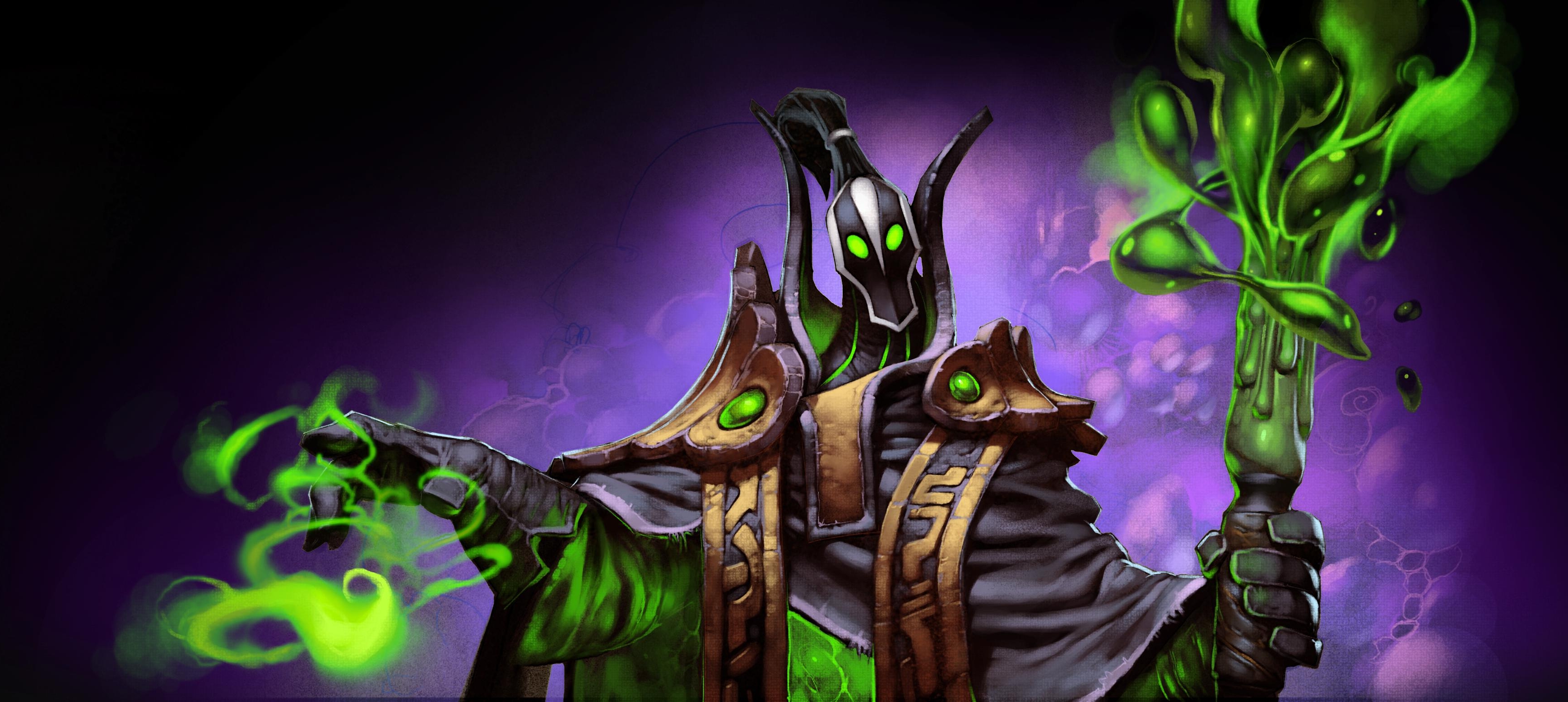Three Lane Highway: Dota is a game about getting better, not being good

Three Lane Highway is Chris' weekly column about Dota 2.
The first step in getting better is knowing that you have a problem. I've never played a game as much as I've played Dota 2. In the space of a little over two years it's overtaken every MMO I've ever loved, every other competitive game—hell, every other hobby I've ever had. I'm writing this wearing a Dota 2 hoody and drinking from the flask they gave out at The International 2013. Dota 2 has become an intractable part of the fabric of my life as a twenty-something. I couldn't stop playing it without compromising dozens of friendships, opportunities, and so on.
But that's not my problem. My problem is that I am bad at it.
And so are my friends. So are the people we play against. So are the people they play against after they're done playing against us. Dota 2 is complex enough that everybody is bad at it, in one way or another. Throughout the year we hold all of these exciting competitions to determine who sucks the least out of a player-base of millions of people who suck. It's an unsolved problem that only the most talented come anywhere close to finding a solution for, and then only briefly.
In every cold objective sense, you and I and everybody we know are bad at Dota 2. It's what you do with that knowledge that matters; how you act in the face of the enormous task set out in front of you.
If you responded to the paragraph above by thinking "not me, I'm great" (or skipping to the comments to write something along those lines) then you are making the mountain harder to climb for yourself, and likely also for the people you play with. This is why Purge's guide is called what it is. It's why pro players rarely take pubs seriously. The game is seriously hard, and millions of people will expend thousands of hours on it and never reach the point where they could be called good. That truth can be tough to deal with. It's Dota 2's game over screen for some.
One argument goes that if you seriously considered just how far away you were from being 'good' you'd quit and never come back. You'd realise the futility of the endeavour and pack it in. That the Dota addictions of huge numbers of players depend on the illusion of competence provided by a matchmaking system that will sometimes put you in a position to go fifteen kills up against people who seem to know what they're doing.
Keep up to date with the most important stories and the best deals, as picked by the PC Gamer team.
Sometimes. Seem to. The truth is that you are only ever relatively good or relatively bad, on an upswing or a downswing, and that outside of that bubble you'll always be below where you need to be. When the bubble bursts, the argument goes, the magic of the game bursts with it.
I don't think that's the way your time with Dota 2 has to end. In fact, I've come to suspect that it is because I suck that I've invested so much time in the game. Unique among almost any other game I've ever played—although admittedly I never really clicked with a competitive game before this one—Dota 2 offers things to improve about myself in perpetuity. Unlike an MMO where many of those things are numbers attached to my character, here they are nebulous, personal, far-reaching. The sensation is of tuning an engine that is always getting faster but is never exactly fast, of turning a corner and realising that the road just keeps going on, further and further and further away to the horizon. Broadly speaking you can either be repelled by infinity or attracted to it: I strongly endorse the latter. It's how most good things start.
Blitz puts it like this: "there's two kinds of people in this Dota. There really is. There's the ones that know they suck and want to improve, and the ones that can't accept that they suck and think they are being limited by others around them."
Dota 2 is effective at eating your time because you are always getting better even if you never get good. That's an important distinction, and well worth internalising. Obsessing about whether or not you're 'good' leads to blaming your teammates when things go wrong; to misjudging the things you need to learn; to letting the Dunning-Kruger effect freefarm away in your subconscious. Focusing on the process of your own improvement rather than the end result allows you to focus on what's most important, and most enjoyable, about play. It starts by admitting that you're bad - and ends, hopefully, with you becoming a little bit less bad, step by step, forever.
You're less likely to be a dick, too. Everybody wins.
To read more Three Lane Highway, click here. Today's column was inspired by a conversation with Blitz, whose latest blog about Team Zephyr is well worth reading.
Joining in 2011, Chris made his start with PC Gamer turning beautiful trees into magazines, first as a writer and later as deputy editor. Once PCG's reluctant MMO champion , his discovery of Dota 2 in 2012 led him to much darker, stranger places. In 2015, Chris became the editor of PC Gamer Pro, overseeing our online coverage of competitive gaming and esports. He left in 2017, and can be now found making games and recording the Crate & Crowbar podcast.


